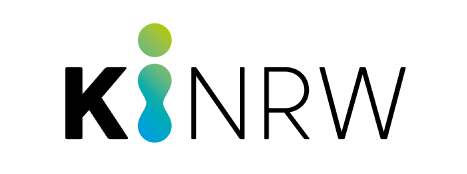KI.Highlights aus NRW
Kuratiert aus unserer KI.Landkarte
Ausgewählte Beispiele aus dem nordrhein-westfälischen KI-Ökosystem
An dieser Stelle heben wir Forschungsprojekte und -kooperationen, aber auch Unternehmen und Produkte aus NRW hervor, die exemplarisch dafür stehen, was mit Künstlicher Intelligenz möglich ist. Die KI.Highlights zeichnen sich dadurch aus, dass sie gesellschaftlich relevante Themen und Herausforderungen aufgreifen, einen Beitrag zur Nachhaltigkeit leisten, besonders erfolgreich sind oder ausgezeichnet wurden.
Mit unseren Highlights zeigen wir, wie vielseitig das KI-Ökosystem Nordrhein-Westfalens ist. Sind Sie neugierig geworden? Viele herausragende Beispiele mehr aus den Themenfeldern »Wirtschaft«, »Wissenschaft« und »Qualifizierung« finden Sie auf unserer KI.Landkarte.
Lernen Sie die KI.Highlights aus NRW kennen:

Highlights – Frühjahr 2025
Highlights – Frühjahr 2024
Highlights – Sommer/Herbst 2023
Highlights – Frühjahr 2023
Mehr Impulse auf unserer KI.Landkarte
Die KI.Landkarte von KI.NRW gibt einen umfassenden Überblick über den KI-Standort Nordrhein-Westfalen und schafft Sichtbarkeit für KI-Expert*innen aus Wirtschaft, Wissenschaft und Forschung. Damit unterstützt die Kompetenzplattform KI.NRW die Vernetzung von Spitzenforschung, Innovation und Unternehmertum und trägt wesentlich dazu bei, Nordrhein-Westfalen als bundesweit führenden Standort für angewandte Künstliche Intelligenz zu etablieren.